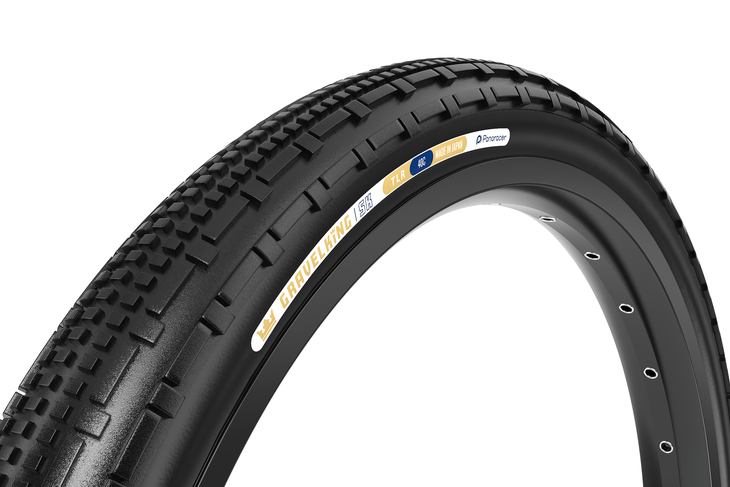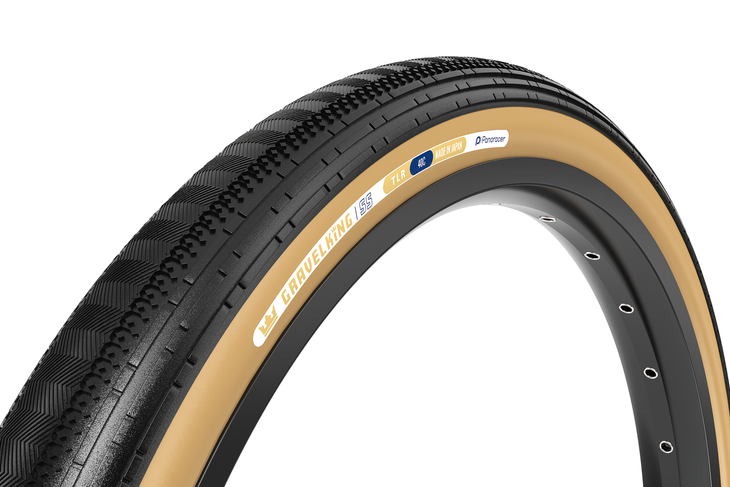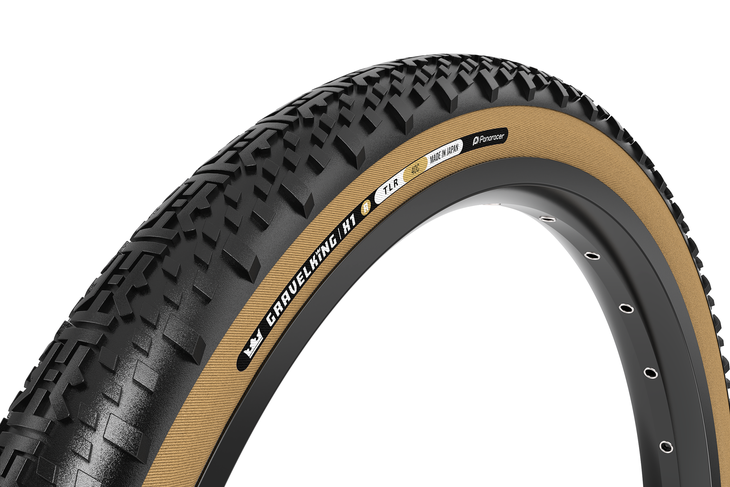The longstanding Panaracer Gravelking tire has received a thorough revamp of the lineup. The Japanese tire manufacturer says they’re coming with a top-down remodel of the lineup, promising better hookless rim compatibility, ease of mounting, and thoroughly modern design specs.
Among those changes are three new casing specifications, five tread patterns, and sizes for 650b, 700c, 29”, and yes, 26” tire options. The Panaracer Gravelking sidewall logos have changed as well, though black and tan sidewall options remain.
We have the details below on the changes, including a new faster gravel-specific tread pattern. Stay tuned for a future review as well where we put the new tires to the test.
A whole new Gravelking X1 option
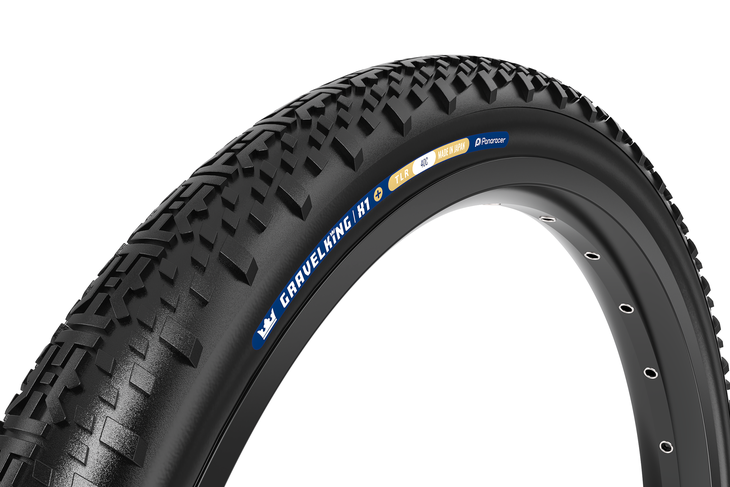
There’s a whole lot of new stuff going on here, but what Panaracer is most fired up about is the new Gravelking X1 tire. Panaracer says the new tread features a fast-rolling center tread paired with side knobs that are positioned higher and more aggressively than the center tread.
The claim here is that the distinctive shape should make cornering smoother, and offer ‘greater control even in diverse terrains.’ Better still, their testing says that the new X1 tire is faster rolling than even the Gravelking SS, the current go-to fast gravel tire in the lineup.
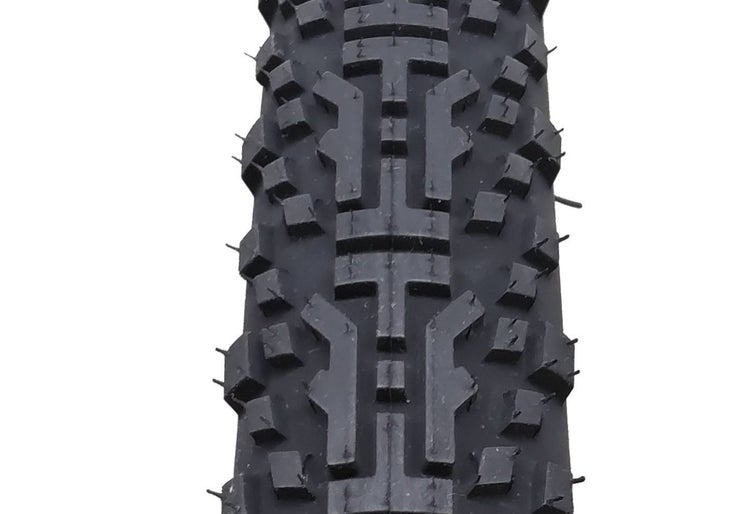
The tread itself looks fairly aggressive for what they’re claiming, particularly when you put it beside almost any other company’s fast gravel tire. Those are generally nearly-slick in the middle, and almost never have the raised tread that the Gravelking X1 has.
Panaracer promises the Gravelking is easier to mount
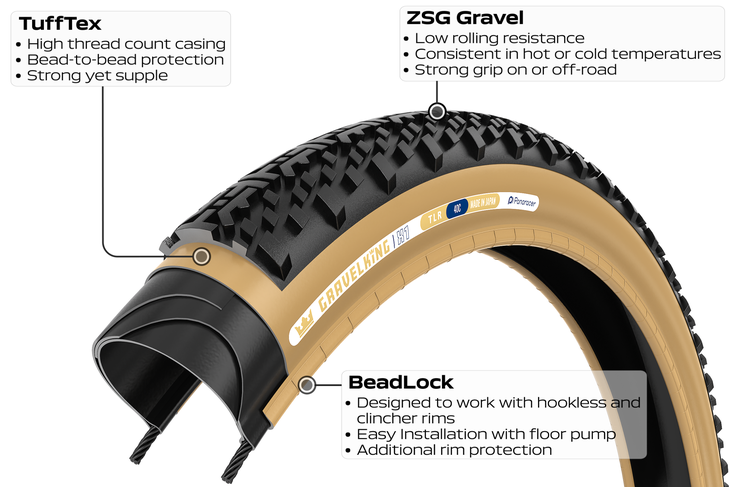
The Panaracer Gravelking was first released in 2014 with only a few options. In 2024, however? It’s truly expansive, with the Gravelking name spanning across a number of options in diameters, widths, casings, treads, and even colors.
With that 2014 original release came 2014 specifications. Panaracer’s “Global Go-To Guy” Jeff Zell said that the original Gravelking was designed around a 17 mm internal rim width, a far cry from the 23 mm and 25 mm (or more!) internal rim widths the average gravel tire mounts to today.
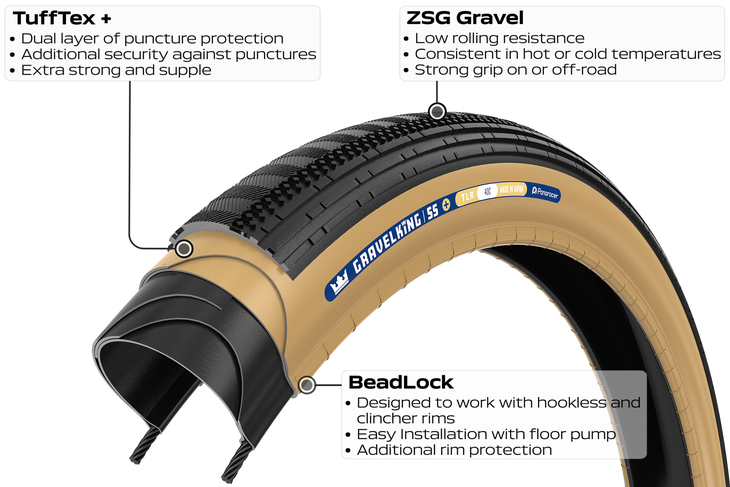
While this doesn’t completely answer the difficulties sometimes associated with mounting previous-generation Gravelking tires, it says a lot about how the demands on a gravel tire have changed over the years.
As such, Panaracer has redesigned the bead around to better accommodate both hookless and clincher/hooked rims. Panaracer even goes so far as to claim the Gravelking can be mounted and set with a standard floor pump. Considering all the curse words that bike shop employees have muttered under their breaths setting up Gravelking tires over the last few years, we’re excited to put that claim to the test.
New casing options
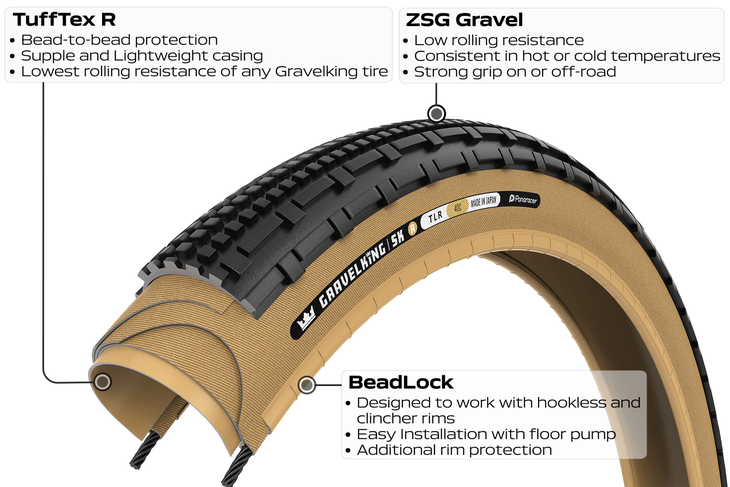
Panaracer now has three different casing options, two of which are already familiar. The standard and ‘+’ (plus) casing names remain, though both received a redesign. The standard casing uses what Panaracer calls their TuffTex material with ”high thread count” and bead-to-bead protection, while ‘+’ casing adds a second layer of their TuffTex.
The new, third casing option is called TuffTex R, which is thinner and lighter than the standard casing. Panaracer says it’s their lightest casing to date, and the way to go to find their lowest rolling resistance.
All Gravelking tires use the same rubber compound regardless of casing or tread choice.
The Gravelking, Gravelking SS, Gravelking SK, and Gravelking EXT tread options all remain as before. Gravelking is the slick tire, Gravelking SS is a semi-slick with shoulder knobs, Gravelking SK adds center tread knobs, and the Gravelking EXT is their mud and sloppy conditions tire. The Gravelking X1 is the new addition to the lineup, promising to be their fastest tire option.
Specs, availability
Panaracer says that the entire Gravelking lineup will be available both online and in-store starting in March. Below is the range of spec options for casing, tread, and widths available. More is available at panaracerusa.com.
| Casing Option | Tread | 700c sizes (in mm) | 650b sizes (in mm) | 29″ sizes (in inches) | 26″ sizes (in inches) |
| Standard | Gravelking | 26, 28, 30, 35, 40 | 38, 42, 48 | ||
| Gravelking X1 | 35, 40, 45 | ||||
| Gravelking SS | 28, 30, 35, 40, 45 | 38, 43, 48 | |||
| Gravelking SK | 26, 28, 30, 35, 40, 45, 50 | 43, 48, 54 | 2.1 | 2.1 | |
| Gravelking EXT | 38, 45 | ||||
| +’ (Plus) | Gravelking + | 30, 35, 40 | |||
| Gravelking X1+ | 35, 40, 45 | ||||
| Gravelking SS+ | 28, 30, 35, 40, 45 | ||||
| Gravelking SK+ | 30, 35, 40, 45, 50 | 48 | 2.1 | 2.1 | |
| Gravelking EXT+ | 38, 45 | ||||
| R Casing | Gravelking R | 28, 30, 35, 40 | |||
| Gravelking X1 R | 35, 40, 45 | ||||
| Gravelking SS R | 28, 30, 35, 40, 45 | ||||
| Gravelking SK R | 30, 35, 40, 45 |
